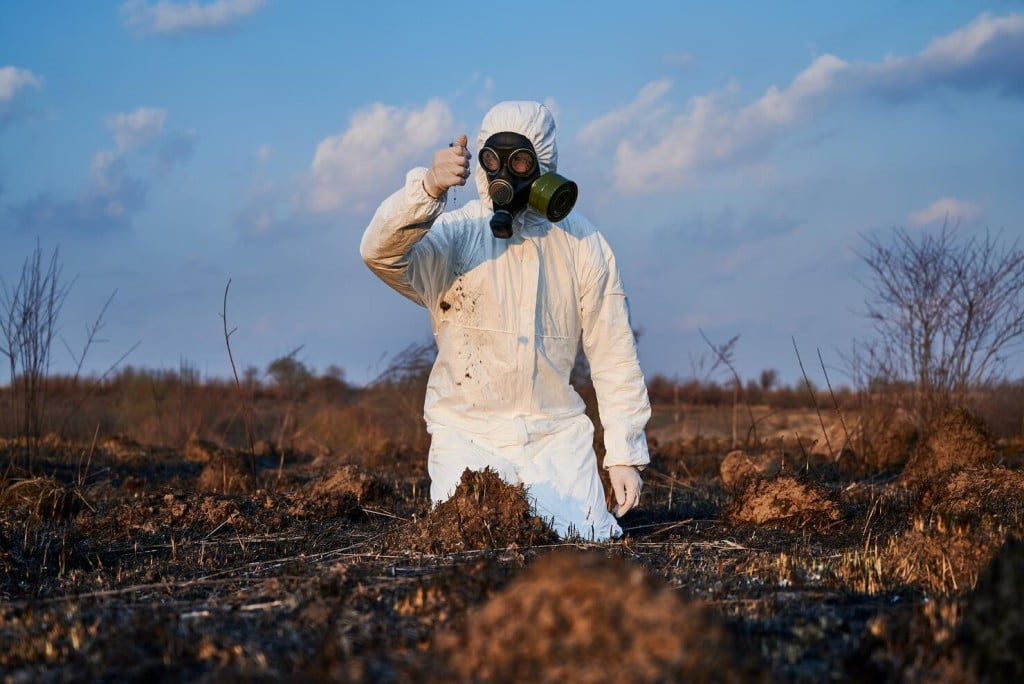Things You Should Know About the Treatment of Chemical Burns

If you have been diagnosed with chemical burns, you probably feel a lot of pain and wonder how to treat it. You should know a few things that will help you take the pain out of this type of injury.
Symptoms
When chemical burns occur, it is essential to get medical attention right away. This is because some burns may cause severe complications and can be life-threatening if not treated immediately.
Chemical burns can be caused by inhalation of fumes or by accidental contact with an acid or alkali. People with weakened or decreased mobility are at greater risk for burns.
Severe chemical burns can result in vision changes and other systemic illnesses. Depending on the severity of the burn, you may require surgery to repair damaged eye membranes or skin grafting to replace damaged tissue.
Symptoms of chemical burns vary from person to person. Signs include shortness of breath, nausea, and mouth, throat, or stomach pain. Other symptoms include dizziness and lightheadedness. Symptoms can worsen as time passes. Usually, minor chemical burns heal quickly, but severe ones can take weeks or longer to heal.
Diagnosis
Chemical burns can be excruciating, as they can cause deep tissue damage. However, they tend to heal quickly with the proper treatment.
They can be caused by accidental contact with acid, alkali, or metal compounds. It is essential to follow the directions on the container for handling these substances.
Chemical burns can occur in almost any part of the body. They can also be severe. Some can cause long-term health problems, and others may result in death.
The most common chemical burns are caused by exposure to caustic materials. These can be swallowed or inhaled, or they can be splashed on the skin.
If you have had a chemical burn, you should immediately contact a medical professional for some treatment of chemical burns. You will need to undergo a physical exam and assess the damage. This will help your physician determine if you need further treatment. Depending on the type of injury, you might need a breathing tube or IV fluids.
Antibiotics
When chemicals cause a burn, antibiotics are often prescribed. Chemical burns can include burns to the hands, groin, face, or eyes. Inflammation and swelling of the burn wounds are symptoms of infection.
Bacteria and fungi are the most common pathogens in burn wounds. These organisms can originate from various sources, including the environment, the patient’s gut microflora, and the hospital environment. The virulence of these organisms determines how the infection progresses.
Burn injuries are associated with an increased risk of infection, prolonged hospitalization, and disability. It is essential to evaluate the role of antibiotics in reducing these morbidities. Antibiotics are prescribed to prevent infection and control the pain of a burn.
Some antibiotics are administered by injection or by skin application. Topical antimicrobial therapy is a common adjunct to surgical treatment for burns. This method can be effective in preventing infection.
Prescription pain medications
The good news is that you’re unlikely to need prescription pain medications to get rid of burn pain. Over-the-counter pain relievers such as ibuprofen and naproxen can help with mild to moderate burns. However, more serious burns may require long-term care. You can always talk to a pharmacist if you need help deciding which over-the-counter product to choose.
In addition to over-the-counter pain relief products, consider topical analgesics. These products are applied directly to the affected area to block pain receptors in the brain and body. Depending on the manufacturer, you may find ingredients such as lidocaine, aspirin, capsaicin, and aloe vera.
While you’re at it, consider a non-prescription antihistamine. Antihistamines can be a good option for burn patients with mild cases of itching.
As with any medical emergency, you should seek out the advice of a professional. Although chemical burns are rare, they do happen. It’s essential to follow safety precautions such as storing chemicals in original containers and wearing protective gear.
Ointments
If you have chemical burns, you should contact your doctor right away. Depending on the severity of the burns, you may need to undergo specialized treatment.
Most minor burns heal quickly with proper treatment. However, some people need long-term care. Medications can also play a role in the healing process.
Severe burns can cause damage to bones, tendons, nerve endings, and muscles. They can also lead to scarring. Treatment can include skin grafting.
If the burns are painful, you can apply a topical ointment. However, you should stop using the ointment if you start experiencing hives or other problems. The ointment should be applied at most twice a day. You should also change the dressings daily.
Minor burns do not need to be treated in a hospital. In fact, they are typically fixed within a few days. With more severe burns, however, surgery may be necessary to remove the burned skin and replace it with healthy tissue from elsewhere.
Avoiding ice, butter, oil, egg whites, or toothpaste
The best way to avoid burns is to stay away from the source. It’s also a good idea to consult a healthcare provider if you think you might have been involved in an accidental burn.
Ice is a big no-no for burns. This is not only because ice can cool you down but can also lead to frostbite. Likewise, using too much butter, oil, or toothpaste is bad. In addition, greasy ointments slow the release of heat from the skin.
Aside from using the right amount of cool water, there are other things to do to help your skin heal. First and foremost, get a decent dose of rest and relaxation. Also, make sure your bandages are free of fibers.
Besides that, you should also ensure you are taking the right kind of vitamins and antioxidants. These will not only help with your healing process but also reduce the risk of scarring.
